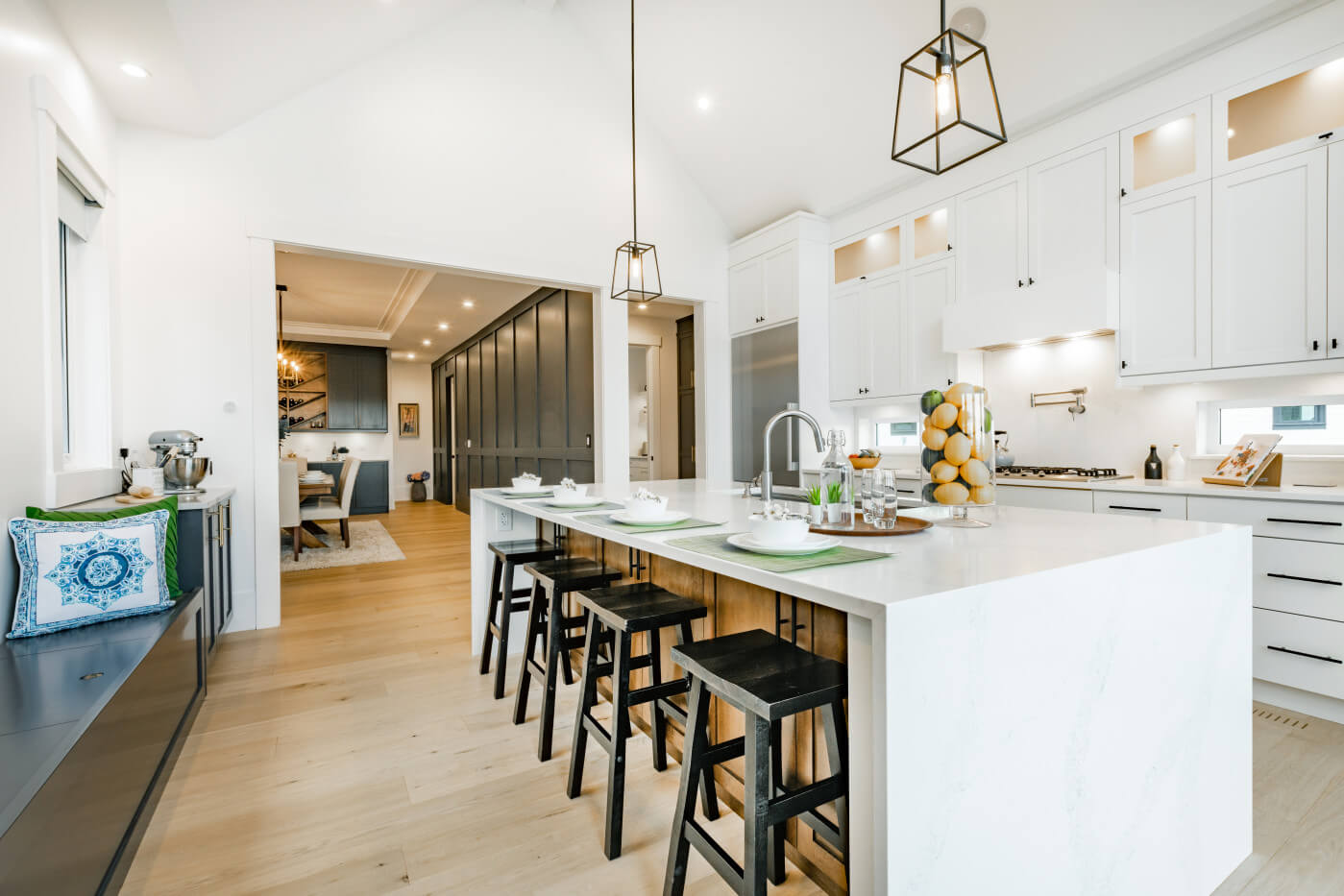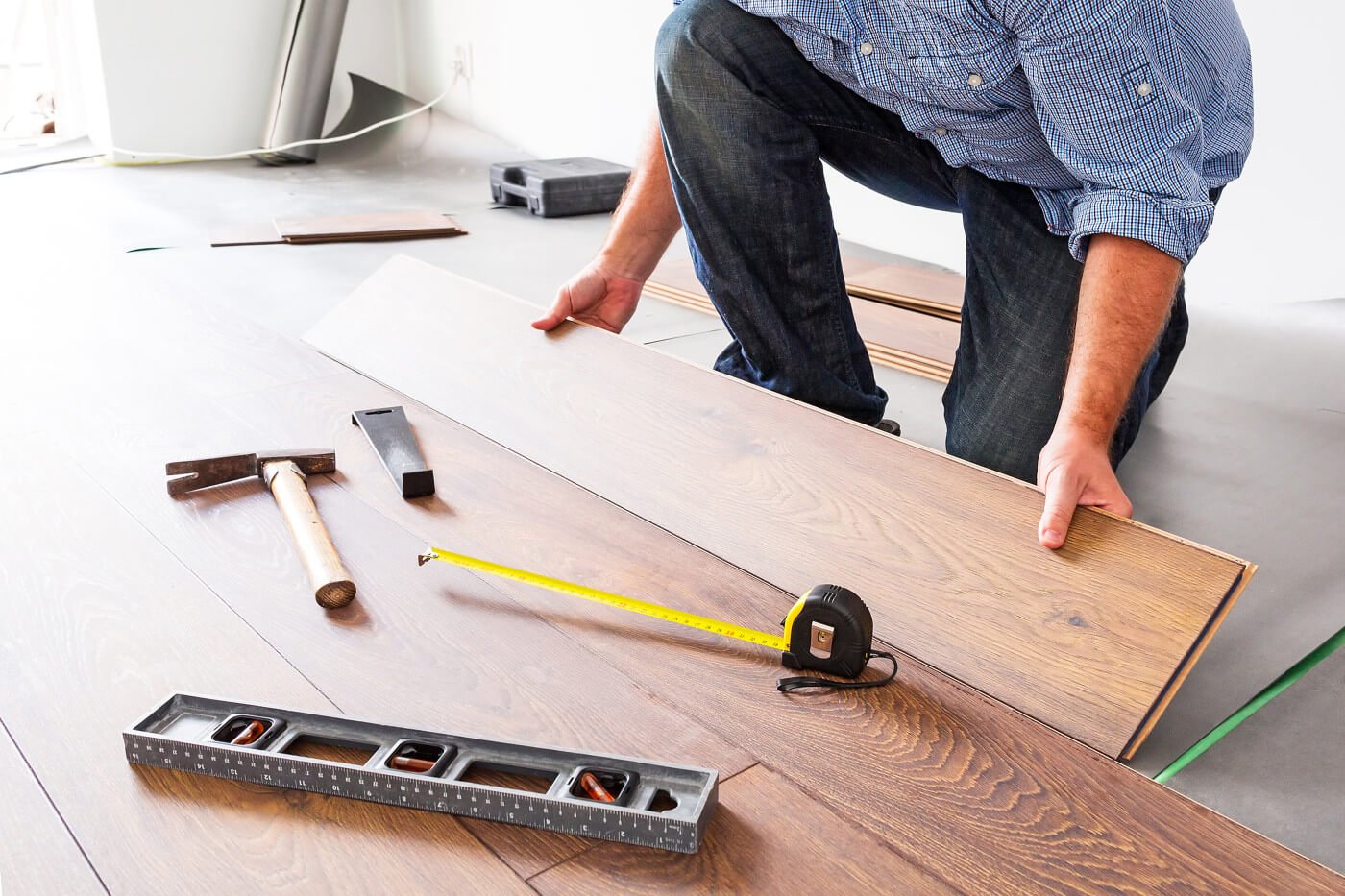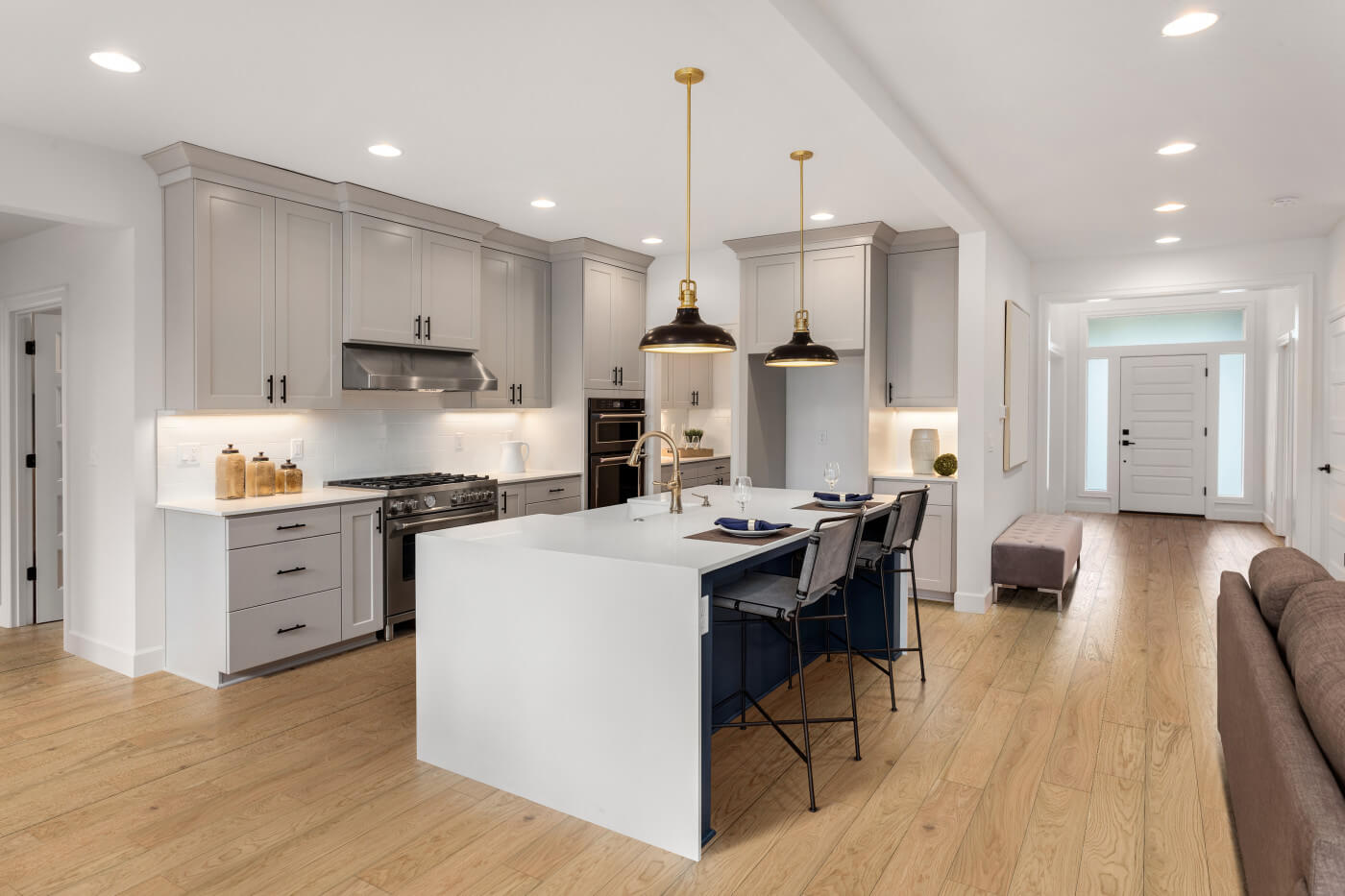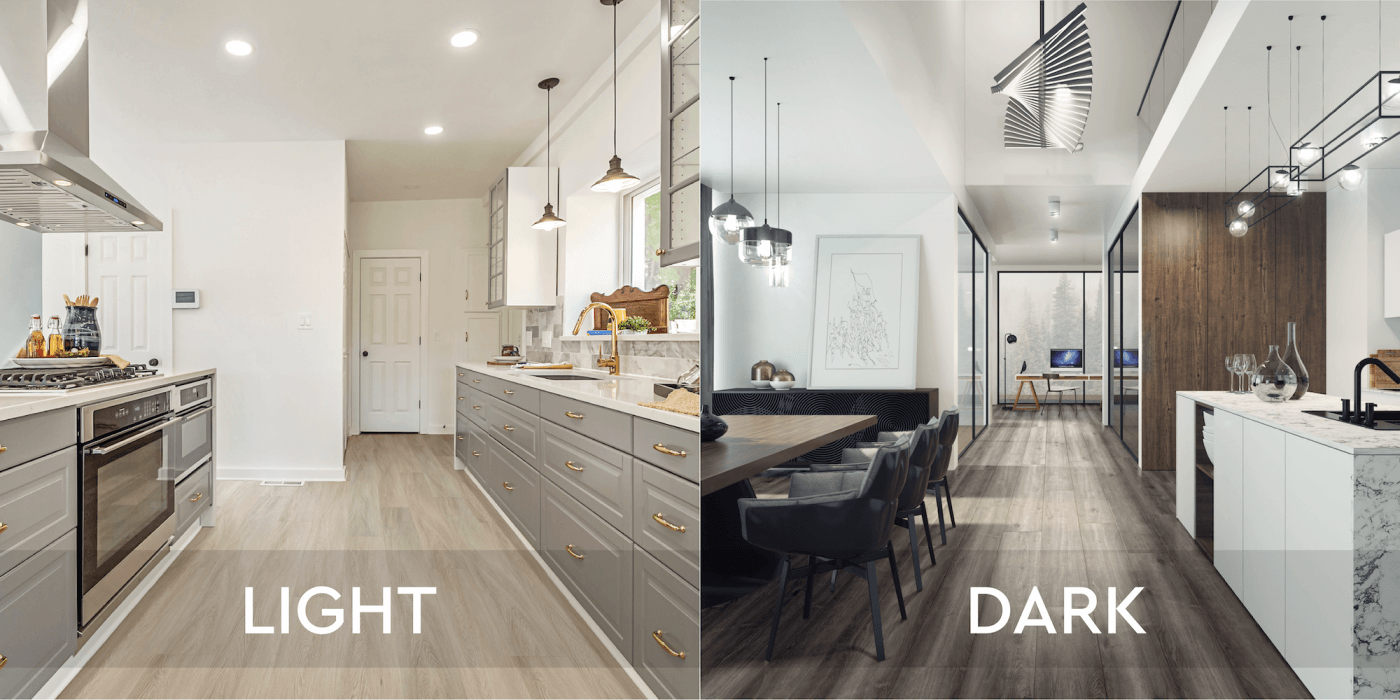
How to Clean Engineered Hardwood Floors
Homeowners across America choose hardwood floors as an economical way to achieve the natural look of genuine wood at an affordable price. Engineered hardwood floors from Harper Floors are durable and resistant to many forms of damage. However, engineered wood can sustain water damage, scuffs, and scratches like any flooring product.
The flooring experts at Harper Floors want our customers to enjoy their hardwood floors for years. This guide will help homeowners, property managers, and contractors learn how to clean engineered hardwood floors if they get stains or become dirty and protect them from some of the most common forms of damage.
What Are Engineered Hardwood Floors?
Engineered hardwood floors consist of genuine wood. Instead of planks of wood, processed wood consists of layers, strands, or wood flakes that the manufacturers press into shape and hold together with adhesives.
A thin veneer of solid hardwood rests atop the other layers, making the flooring look like solid hardwood.
Engineered wood can have different physical properties than planks of solid hardwood. Solid wood's natural shape and structure give it strength and stability but can also make it prone to warping, particularly when exposed to moisture and heat. Engineered hardwood floors are not impervious to environmental conditions, but their artificial construction confers some advantages.
However, engineered hardwood floors have some limitations that property owners and designers should consider. For example, the adhesive that holds different pieces of wood together can give way. In addition, impact from falling objects can scuff, chip, or split engineered hardwood flooring.
You cannot learn how to clean engineered hardwood floors effectively unless you appreciate the differences between engineered hardwood and other wood products.
One reason why proper maintenance of engineered hardwood floors is so crucial is that you cannot sand and resurface engineered hardwood as you might resurface solid hardwood. If you sand the flooring, you will strip away the veneer and expose the deeper layers of wood. As a result, the wood particle will break apart or chip away rather than forming a smooth surface you can stain and polish.
Hardwood comes in several types, including plywood, laminated wood, composite board, and fiberboard. Engineered hardwood flooring can consist of just about any type of wood, including oak, cherry, and mahogany.
Care and Maintenance Guide for Engineered Hardwood
Engineered hardwood can last for decades in typical family homes. Homeowners can extend the lives of their hardwood floors by taking steps to reduce the risk of damage, cleaning floors periodically, and mitigating damage from spills, leaks, and other causes of damage.
Intended Use
Engineered hardwood flooring is suitable for interior use in areas that receive moderate foot traffic. Contractors and designers use hardwood floors in many contexts, including:
- Dining areas
- Living rooms
- Hallways
- Bedrooms
Some designers use hardwood flooring on walls to create an attractive alternative to conventional wood paneling. Engineered hardwood paneling could last longer than flooring because it does not have to withstand furniture, footsteps, and spills.
Marine-engineered hardwood has a higher level of water resistance than other types of engineered hardwood. It is appropriate for areas with greater water exposure, such as kitchens and bathrooms.
General Maintenance
Property owners and managers need to prepare for the long-term care of engineered hardwood floors. Learning how to clean engineered hardwood floors means ensuring they stay clean through careful housekeeping and attention. Contractors and designers planning hardwood floor installation projects should help their clients understand how to clean their hardwood floors.
Clean Up Spills Immediately
Hardwood floors are better able to resist water if the water does not have time to soak into the wood. Noticing spills and cleaning them up as quickly as possible is an effective defense against staining, warping, or delamination due to water exposure.
Weekly Vacuuming, Sweeping, or Dusting
It is easier to prevent stains and scuffing of wood surfaces if you keep the surface clear of dust and dirt. When people walk on dirty or stained floors, they can grind particles into the wood surface, making stains harder to remove and marring the finish of the wood.
Avoid using any cleaning appliance with harsh bristles to prevent scuffing the floor. If you use a vacuum cleaner to clean your hardwood floors, do not use one with a beater bar. You can also use a manual broom, electric broom, or duster on your hardwood floor.
Heavy-Duty Cleaning
In the winter, snow, slush, and mud can leave hardwood floors looking grimy. Thorough, heavy-duty cleaning in the spring is a great way to restore your floor’s natural beauty.
The engineered hardwood flooring specialists at Harper Floors recommend BONA Hardwood Floor Cleaner for deep cleaning. BONA is a residue-free cleaning compound that removes dirt from hardwood, polyurethane, and many other flooring materials.
Preventative Maintenance
A crucial part of understanding how to clean engineered hardwood floors is knowing how to keep them from becoming dirty in the first place. Putting hardwood floors in environments where they will last as long as possible, in the care of people with the knowledge they need to maintain them, is the best way to extend their life.
Homeowners and designers can develop interior design schemes and lifestyle choices that reduce or eliminate some sources of wear, stains, and other forms of damage to flooring.
One important consideration is the temperature and humidity range that works best for engineered hardwood. Relative humidity below 35% and above 60% can distort the wood, causing the floor to become uneven and unsightly.
The temperature should stay between 60 and 80 degrees Fahrenheit. Although engineered hardwood flooring is less vulnerable to changes in temperature than solid hardwood, it can still expand, shrink, and change shape in extreme temperatures.
Reducing Damage from Foot Traffic
Engineered hardwood flooring is generally resistant to damage from people walking across it. However, some types of foot traffic, including wet shoes, ice skates, athletic equipment, luggage, and other heavy, filthy, or sharp objects, could cause lasting damage to flooring.
Shoes
The social norm of taking shoes off before entering a home is increasingly part of daily life in the United States. One reason for this cultural shift is the desire to protect floors from scuffing, mud, and water. Homeowners wanting to extend the lifespan of their floors should adopt the practice and provide shelves or cubbies by the door for visitors to leave their shoes.
Placing Mats
Homeowners who wear shoes indoors can protect floors by providing a mat for wiping off shoes before entering the home. Mats are also a good idea for setting down wet and muddy boots.
Homeowners who have pets can keep water stains off of their flooring by putting mats or trays underneath food and water dishes.
Mats in bathrooms or mudrooms absorb moisture on feet and shoes, keeping the floor dry.
Set an umbrella stand by the doorway so that water dripping from umbrellas does not damage your floor.
Use Felt Protectors for Furniture
Heavy furniture with metal or hard plastic legs can dig into engineered hardwood. Placing adhesive-backed felt protectors on the tips of each leg prevents the end of the leg from digging into the wood's surface.
Casters with wheels made from a softer material, such as wood, are a suitable alternative to felt protectors for mobile pieces of furniture, such as carts.
Prevent Excessive Exposure to Sunlight and Heat
Like many surfaces with distinctive hues, it is helpful to keep engineered hardwood floors away from direct sunlight. Over time, UV light can cause the colors to fade, making the room seem drab and lifeless. You can reduce this by doing the following:
- Install windows with a protective coating that blocks UV radiation.
- Use shades, blinds, or curtains to control the level of natural sunlight entering the room.
- Avoid using high-intensity lighting, such as grow lamps, in rooms with exposed engineered hardwood flooring.
Engineered wood can be more heat-resistant in some respects than solid planks of hardwood. The resin adhesives manufacturers use for engineered hardwood can survive temperatures high enough to set the wood on fire. However, the flakes or layers of wood that comprise engineered wood can dry out and twist when exposed to heat.
If you plan to use engineered wood in an area that gets hot, control the humidity and choose a type of wood that stands up to heat.
You can protect your hardwood floors from excessive heat in the following ways.
- Do not set the thermostat too high when using radiant heating under engineered hardwood floors.
- Do not place a space heater directly on your hardwood floors.
- Use a fireplace screen or other form of protection if you have engineered hardwood floors near a fireplace.
Engineered Wood Cleaning Mistakes
Understanding how not to clean hardwood floors is just as essential as learning how to clean engineered hardwood floors. Many home and business renovations go awry because well-meaning property owners and managers try fixing their hardwood floors without adhering to the industry's best practices for cleaning and maintenance.
Application of Harsh Chemicals
Engineered hardwood flooring is durable enough to withstand an occasional spill. However, scrubbing hardwood floors with caustic or corrosive chemicals can do more harm than dirt or stains. Even some chemicals that might be fine for cleaning kitchen tile or other surfaces could be too harsh for engineered hardwood floors.
Anyone planning to clean their hardwood floors should avoid the following chemicals:
- Ammonia
- Bleach
- Hydrogen peroxide
- Oil soaps
- Wax-based cleaners
If you are unsure whether any specific cleaning product will damage your engineered hardwood floors, consult the instructions on the bottle or ask the experienced consultants at Harper Floors.
Using the Wrong Tools
Some property owners believe products are suitable for cleaning engineered hardwood floors just because a manufacturer advertises a product as an effective floor cleaner. However, many products that work well on solid hardwood floors, glass, porcelain, tile, or linoleum, are wrong for engineered hardwood.
For example, homeowners or repair technicians who use rough tools, such as wire brushes, brushes with stiff bristles, and scouring pads, could tear apart the surface of the hardwood flooring, leaving permanent scuff marks.
Additionally, certain cleaning tools, such as steam mops, might be appropriate for carpets or tile floors but can cause substantial damage to wooden floors, including engineered hardwood. While many forms of engineered hardwood are highly water-resistant, they may not be able to withstand sustained exposure to heat or moisture.
Steam cleaners can cause extensive damage to engineered hardwood floors because they combine two elements that are dangerous alone: heat and moisture. If steam infiltrates the particles of wood, it can distort the flooring. Steam-damaged wood can be challenging to repair and might require the replacement of some or all of the damaged planks.
Homeowners who apply these tips will preserve the look and smooth surface of their engineered hardwood. Meanwhile, contractors and designers who choose the right hardwood floor and help their clients look after it will achieve a higher level of customer satisfaction and a portfolio of successful flooring projects.
Check Out Our Engineered Hardwood Floors!
Now that you know how to clean engineered hardwood floors, you can find the perfect hardwood floor for your next home remodeling or new construction project. Create an innovative design that makes the best use of engineered hardwood's natural advantages.
Harper Floors provides engineered hardwood floors for homes and businesses across the United States. Our reputation depends on our products being able to stand the test of time. It matters to us that our customers understand how to clean engineered hardwood floors and keep them looking new.
If you want to learn more about engineered hardwood floors and how they can improve your next interior design or home construction project, call 1-888-807-2704 and speak with a hardwood floor specialist.
We are happy to work with homeowners, interior designers, and contractors at any stage of the project. Contact us with questions about any topic, such as debunking concerns about SPC vinyl floors' safety. No job is too large or too small for us at Harper Floors, so call today!



